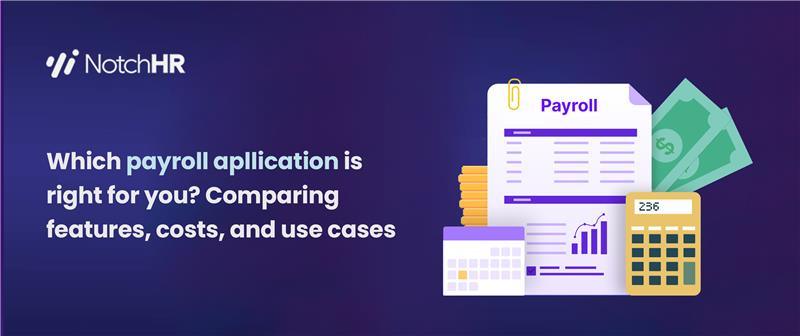Employee financial fraud is a pervasive issue that can have devastating consequences for businesses of all sizes. The betrayal of trust and the financial losses incurred cripple organizations, leading to long-lasting damage.
With the way organizations are facing financial misconduct in constant threat, it is important for businesses to proactively address and mitigate the risks associated with employee financial fraud. This blog post aims to provide valuable insights and practical tips on how to effectively deal with this challenging issue.
Preventing Employee Financial Fraud
When it comes to safeguarding your business against the risks of employee financial fraud, prevention is the key. When you implement strong preventive measures, you can significantly reduce the likelihood of fraudulent activities taking place within your organization. Here are some practical steps you can take to protect your organization:
Implementing strong internal controls and procedures
Establish robust financial control systems for checks and balances that ensure multiple layers of approval and oversight for financial transactions. And also assign different responsibilities to different employees to prevent a single individual from having complete control over financial processes.
This will make you stay vigilant by periodically evaluating and enhancing your internal control framework to adapt to evolving risks.
Conducting regular audits and reviews
Regularly assess your financial records, statements, and transactions to identify any inconsistencies or irregularities. You can also engage external auditors who can provide an objective assessment of your financial processes and practices.
Consequently, you can conduct unannounced audits to catch any fraudulent activities off guard, this will discourage potential wrongdoers.
Educating employees about fraud prevention and detection
Offer workshops or online courses that will educate your employees about the different types of financial fraud, red flags to watch out for, and reporting procedures. Encourage your employees to be proactive in reporting any suspicions or concerns they may have, fostering an environment where fraud is not tolerated.
You can also strengthen the importance of ethical conduct and the consequences of fraudulent behavior through internal communications and policy reminders.
Creating a culture of honesty and transparency
Promote integrity and ethical behavior from top-level management down to all employees. This will set a tone for a trustworthy work environment.
Encourage open communication that will establish channels for employees to voice concerns or report potential fraud anonymously, ensuring their protection from retaliation. You should also recognize and appreciate employees who demonstrate honesty and integrity. It will reinforce the value of ethical conduct within the organization.
When you implement these preventive measures, you can significantly reduce the risk of employee financial fraud within your business. Remember, prevention is always better than dealing with the aftermath of a fraud incident.

Detecting Employee Financial Fraud
While preventive measures help, it’s also important to have robust systems in place to detect any signs of employee financial fraud. When you are vigilant and proactive, you can identify fraudulent activities early on and minimize the damage caused. Here are some practical steps to help you detect employee financial fraud:
Be aware of the red flags of fraud
- Unusual financial patterns: Keep an eye out for sudden changes in an employee’s financial behavior, such as unexplained increases in spending or uncharacteristically lavish lifestyle changes.
- Missing or altered documentation: You should also regularly review financial records, receipts, invoices, and bank statements for any discrepancies, missing information, or unauthorized alterations.
- Excessive control or secrecy: Beware of employees who resist sharing financial information, are overly possessive of their duties, or exhibit a reluctance to collaborate with others.
Investigate any suspicious activity immediately
- Take immediate action: If you notice any red flags or suspect fraudulent activity, promptly initiate an investigation to gather evidence and determine the extent of the fraud.
- Engage professionals if needed: it is important to consider involving forensic accountants, auditors, or legal experts who specialize in fraud investigations to ensure a thorough and impartial examination.
Use fraud detection software
- Implement fraud detection tools: Leverage technological solutions like D&B, Riskified, Midigator, or TIS specifically designed to identify patterns and anomalies in financial transactions, helping to flag potential fraudulent activities.
- Monitor and analyze data: Regularly review system logs, access records, and transaction histories to identify any unusual or unauthorized activities.
Promote a culture of reporting
- Encourage whistleblowing: Establish clear and confidential reporting channels for employees to come forward with any suspicions or information regarding fraudulent activities.
- Protect whistleblowers: Ensure that whistleblowers are protected from retaliation and that their anonymity is maintained to encourage a safe reporting environment.
Remember, early detection is the first step in minimizing the financial and reputational damage that can result from fraudulent behavior.

Dealing with Employee Financial Fraud
Discovering that an employee has engaged in financial fraud can be a challenging and unsettling situation. However, it’s important to take decisive action to address the issue and mitigate further harm. Here’s what you can do when faced with employee financial fraud:
Confront the employee directly
Privately arrange a meeting with the employee you are suspecting of financial fraud to discuss the allegations in a calm and professional manner. You can outline the evidence collected during the investigation, ensuring that the employee understands the gravity of the situation.
To avoid being wrong in blaming innocent people, allow the employee to provide their side of the story and respond to the allegations, providing them with a fair chance to explain their actions.
Take disciplinary action, up to and including termination
Every organization has policies. Refer to your organization’s code of conduct and disciplinary procedures to determine appropriate actions based on the severity of the fraud. If necessary, seek advice from legal professionals to ensure that your actions comply with employment laws and regulations.
Depending on the circumstances, you may choose to issue warnings, suspend the employee, or ultimately terminate their employment.
Report the fraud to the appropriate authorities
If the financial fraud is significant or involves criminal activity, you should report the incident to the relevant law enforcement authorities. Ensure to provide the authorities with all the necessary information, evidence, and documentation to support their investigation.

Strengthen internal controls and processes
To avoid repetitive incidence, you should evaluate the weaknesses in your existing financial control systems that allowed the fraud to occur and take steps to address and strengthen those areas.
Moreover, implement additional checks and balances to prevent similar incidents in the future, such as increased audits, reviews, and segregation of duties. Also try to reiterate the importance of ethical behavior and financial integrity within your organization; this will remind all employees of their responsibility to uphold these principles.
Dealing with employee financial fraud requires prompt action, adherence to established procedures, and a commitment to maintaining a strong ethical culture within your organization.
Conclusion:
Employee financial fraud can have serious implications for businesses, including financial loss, damage to reputation, and erosion of trust. However, by taking proactive steps to prevent, detect, and deal with such fraud, organizations can minimize the risks and protect themselves.
Have you tried NotchHR?
Here are a few ways NotchHR stands out from the crowd.
With NotchHR you can:
- Get remarkable software to simplify HR, for free!
- Run Payroll in a breeze!
- Recruit and onboard the right talents.
- Remit their tax and pension easily.
- Access all your employees’ data in one place.
- Boost employees’ skills and empower their development.
- Improve internal communications.
- Manage requests for leave, cash, work tools, and almost anything else your employees need for work.
… And more!



